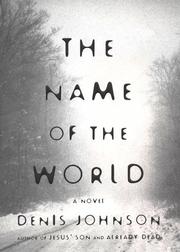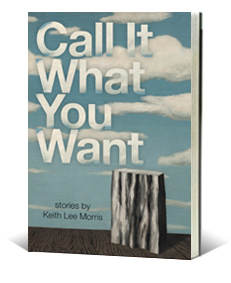They’ll have a music of wet streets / and lonely bars where piano notes / follow themselves into a forest of pity and are lost.
When I was 17, I saw a man on cable television chase a green Volkswagen Beetle until he slammed headfirst into a pole. He didn’t see the pole because he almost had his hands on the car. He was almost as fast. Also as big, almost. The shot of the man falling after he runs into the pole is full of beautiful slants and heights—leafless branches, latticed tower, streak of cloud, dazed knee—that can only feel as much like winter as they do when propped on top of all that flat. Flatness of a color that might introduce itself as green, and you’re like sure, dirt, whatever you say, we already met but don’t worry about it, this time you’ll get your act together.

The shot was directed by Alison Maclean, whose cinematographer was Adam Kimmel. How they made that shot was first they read Denis Johnson’s book Jesus’ Son. I bought the book after I watched the movie to make sure it was Billy Crudup’s voice that was annoying and not the words.
 In the book, the words were in sentences full of glow and ache and the proud civility of the self-fucked, the calm leak of “Excuse me, there’s a knife in my eye.” And also of course the weeping and calling bartenders your mother. They were words about clouds that looked like brains, but they were also words like “help” and “stay” and “save.” Those little words forever hitchhiking back to church and never making it all the way. Paragraphs would interrupt themselves to turn to you. I was 17 and hadn’t read Levinas or Buber, and yet here was the “you” that knew the face on the other end was always dark. Little words like “search” and “name.” Paragraphs that interrupted their description of a shriek to tell you they have gone looking everywhere. For the shriek, they mean, but mostly it’s the gone, and the looking, and the everywhere.
In the book, the words were in sentences full of glow and ache and the proud civility of the self-fucked, the calm leak of “Excuse me, there’s a knife in my eye.” And also of course the weeping and calling bartenders your mother. They were words about clouds that looked like brains, but they were also words like “help” and “stay” and “save.” Those little words forever hitchhiking back to church and never making it all the way. Paragraphs would interrupt themselves to turn to you. I was 17 and hadn’t read Levinas or Buber, and yet here was the “you” that knew the face on the other end was always dark. Little words like “search” and “name.” Paragraphs that interrupted their description of a shriek to tell you they have gone looking everywhere. For the shriek, they mean, but mostly it’s the gone, and the looking, and the everywhere.
A voice smart enough to hear its own narcissism but still stuck at the age where it can’t believe all the things it gets to feel and hear and see to the point where it doesn’t care at all how slurry it sounds to use a word like “glorious,” a voice that slackjaws around in a sheepskin coat calling everything terrible and beautiful like Oprah’s and-you!-get-a-car-and-you!-get-a-car. Back and forth between wide arms and self-hugging and shivering the whole time and I was 17. Even though I knew the Goo Goo Dolls singing “and you bleed just to know you’re alive” was kind of stupid, it didn’t feel that way. Here was an unironic hallelujah named after a song by a band I went out and listened to because of this book. Here was a blurb from some guy named Barry Hannah, so I read him too. Hallelujah. READ MORE >
Writing in Plain Sight: The Author, the Narrator and the Difference (if any)

When fiction reading is going well for me, I translate the words into something that’s both fiction and non-. Take the novel The Name of the World by Denis Johnson, which I read recently for the first time. Here’s the first paragraph:
Since my early teens I’ve associated everything to do with college, the “academic life,” with certain images borne toward me, I suppose, from the TV screen, in particular from the films of the 1930s they used to broadcast relentlessly when I was a boy, and especially from a single scene: Fresh-faced young people come in from an autumn night to stand around the fireplace in the home of a beloved professor. I smell the bonfire smoke in their clothes and the professor’s aromatic pipe tobacco, and I feel the general unquestioned sweetness of youth, of autumn, of college—the sweetness of life. Not that I was ever in love with this scene, or even particularly drawn to it. It’s just that I concluded it existed somewhere. My own undergraduate career stretched over six or seven years, interrupted by bouts of work and transfers to a second and then a third institution, and I remember it all as a succession of requirements and endorsements. I didn’t attend the football games. I don’t remember coming across any bonfires. By several of my teachers I was impressed, even awed, and their influence shaped me as much as anything else along the way, but I never had a look inside any of their homes. All this by way of saying it came as a surprise, the gratitude with which I accepted an invitation to teach at a university.
I relate strongly to the narrator, who we learn later is named Michael Reed. The amount of emotional overlap between Michael’s and my life is scary. I too held similar images of academic life, for me perhaps set in the fifties and involving more letterman sweaters, but the same otherwise. Like the narrator, it took me six or seven years to finish college, and involved three transfers. I was also impressed by my teachers, and I also never imagined seeing the insides of their homes. This is exactly what I look for in a novel reading experience, a character who’s as much like me as possible, and telling his—our—story with a compelling, authoritative voice. Telling me, in short, about me.
But at least as important as my strong relationship to the narrator is the strong relationship I feel to the author. I read the above sentences, and I feel like I know the narrator’s shadow figure, Denis Johnson, very well. How can one write of this bucolic college tableau, “Not that I was ever in love with this scene, or even particularly drawn to it,” and not on some level feel the same way? I think of actors, who have to find something relatable in every character they play, even reprehensible ones. Can a writer fake this stuff? If he can’t, then what’s really the difference between Michael Reed and Denis Johnson?
And still there’s a third level in which I feel a deep connection to this work. As a writer myself, I feel a strong professional connection to the author for these perceived overlaps in our histories and psyches. Denis Johnson is a successful—even world-class—writer, and I hope that these emotional/biographical similarities mean that I somehow—despite all evidence to the contrary—am on some kind of path to a literary career. This guy is just like me, and he won the National Book Award! I can’t help but hope, despite my age, lack of comparable publishing success and absence of completed work as riveting as, say, Jesus’ Son, that I am somehow in the same game as Denis Johnson.
So The Name of the World hit me squarely because I relate to the narrator, and the writer, and because I want to succeed like the writer has succeeded. In other words, I’m about as perfect an audience for this novel as there is.
In all my exploration of writers and writing (B.A. in English, M.F.A. in Writing, 25 years of near constant reading and writing outside of class), I’ve rarely heard anyone mention this third, professional angle to readerly empathy. I suspect this is because, back when I was in school, writers still entertained the idea that most of their audience would come from actual readers and not other writers. There were of course “writers’ writers” back then, or those authors who were read almost exclusively by other writers—David Foster Wallace comes to mind. But I still think we were largely in the Saturday Evening Post romance of the reader/writer relationship, that is, educated people sitting down with books and magazines and being sucked in by written pieces. The author Gary Shteyngart gets credited for having said, “The number of people who read serious literature is now exactly equal to the number of people who write it.” Maybe an exaggeration, but probably the healthiest angle from which to come at a literary writing career in 2014.
Despite my deep interest in the writer of The Name of the World, I wouldn’t like the book as much if it were memoir. Imagine if the first sentence of the intro paragraph were “Hi, I’m Denis Johnson,” and “Denis Johnson” replaced “Michael Reed” throughout. I would still be interested in the book, and I’d probably read it and relate to it deeply at points. But I could never fully imagine myself into the narrator’s plight the way I can with the novel The Name of the World. In other words, the memoir The Name of the World would never quite be about me and Denis Johnson the way the novel is. The fiction tag allows Johnson, or any writer, to play both hands: he can utilize a fictional narrator, which allows the reader more leeway to see herself in the character, and he can titillate with suggestions of autobiography, which allows the reader to form empathy with the writer. Somehow these two readerly perspectives aren’t contradictory. The narrator of The Name of the World is both Michael Reed and Denis Johnson, and I’m fine with that.
May 12th, 2014 / 10:00 am
Does the Pulitzer suck, and if so, whom?

Winners of the 2012 Pulitzer Prize will be announced today at 3pm. Any predictions? The Pulitzer Prize for Fiction has been awarded to no one, apparently. Nominees were Denis Johnson’s Train Dreams, Karen Russell’s Swamplandia!, and David Foster Wallace’s The Pale King. I’m curious what you think of the prize (Fiction category or in general). Is it
a) a highly prestigious stamp of approval that guarantees an enjoyable and edifying read
b) a mainstream award given to a conventional, palatable work (though the work may be formally inventive in superficial ways), leading to increased sales, certainly among readers of “serious literary fiction” but mostly among a segment of people who want to acquire cultural capital without too much effort
OR are you an enlightened in-betweener? If you tell me I will put it in a pie chart. I remember “at one point in my life” having a lot of fun making lists in a .txt file of Pulitzer winners and a future reading order that I would never end up following. I also remember (much later) finding Finding a Form by William Gass in the library, [I don’t mean this to sound like a conversion story. Beloved was pretty phenomenal. Lonesome Dove features a river full of snakes.] and reading this on the first essay’s first page:
from “Pulitzer: The People’s Prize” by William Gass
ToBS R1: shortshort referring to whiskey consumption vs. asking facebook friends to review yr book on amazon
[Matchup #19 in Tournament of Bookshit]
Whiskey as cultural flashpoint implies a kind of toughness, a kind of rambunctious, possibly-troubled badassness of attitude (due to overuse it’s shifting into a symbol of extended upper-middleclass adolescence aspiring to evoke the above) exactly counteracted by the poncey formal envelope of ‘short-short.’ These two clichés epitomize the literary trinket cranked out by our culture. A frilly package whose contents purport to be “broken,” like Hugh Laurie blues album.
The whiskey person travels to writers’ conferences where people like Denis Johnson and Tim O’Brien tell them to characterize with vivid detail. This is advice they need to hear (since their ‘short-short’ is, other than cultural flashpoint, an orgy of exposition) but will never heed. When they return form the conference, they only talk about who they met, never about what they learned. They mention the drink they had with Denis Johnson, and how cool and normal he seemed, yet also weird in a couple of ways! Then they ask you how your weekend was, and they actually care. READ MORE >
Keith Lee Morris’ Fragile Men

Call it What You Want: Stories by Keith Lee Morris. Tin House Books. pp. 264, $14.95 list ($10.76 at the above-linked B&N.com).
Reviewed by Jennifer Bassett.
.
My first “real” writing class was in high school and taught by a young man who had just graduated from an MFA program. He was excited and passionate and on the first day of class he read us Denis Johnson’s “Car Crash While Hitchhiking” from Jesus’ Son. We were all riveted. First of all, the story involved drugs (!) and secondly the writing was so sharp, it practically slit our wrists. For me, personally, that moment was particularly pivotal. Jesus’ Son and Johnson’s particular brand of writing—tough, honest, gritty, male, but with an undercurrent of boyish vulnerability—came to represent a standard by which I judged everything else.
May 7th, 2010 / 10:26 am
